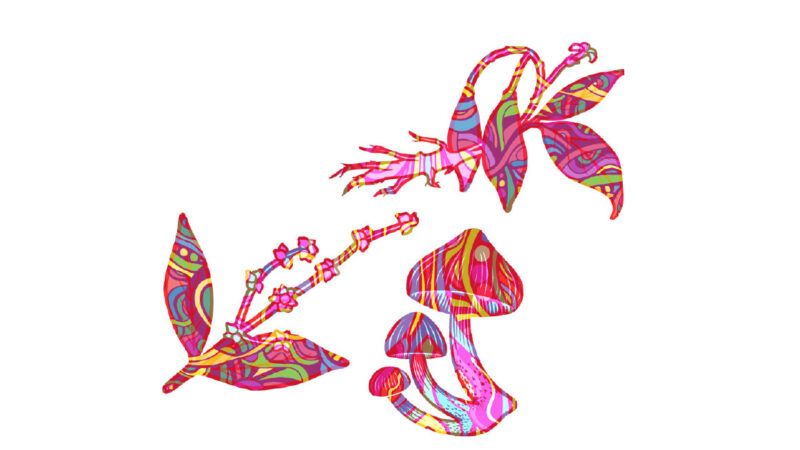Seattle and Detroit Move Toward Decriminalizing Psychedelics
Though state laws in both places have not yet adapted, consumers of "entheogenic" plants and fungi are now less likely to be arrested and prosecuted in the two cities.

Two major cities, Seattle and Detroit, this fall approved measures aimed at protecting consumers of "entheogenic" plants and fungi from arrest and prosecution. Those new policies are part of a broader trend that began when Denver voters approved a groundbreaking 2019 ballot initiative making adult possession of psilocybin the city's lowest law enforcement priority and prohibiting the use of public money to pursue such cases.
A resolution that the Seattle City Council unanimously approved in October likewise urges police to leave psychedelic users alone, but its reach is broader than the Denver initiative's. It covers noncommercial "cultivation" and "sharing" as well as possession, and it applies to "any living, fresh, dried, or processed plant or fungal material, including teas or powders, that may contain currently scheduled or analog psychoactive indolamines, tryptamines, or phenethylamines, including, but not limited to, psilocybin mushrooms, ayahuasca tea, mescaline, and iboga."
Although Seattle's resolution endorses "full decriminalization" of "entheogen-related activities," it does not affect state penalties for producing, distributing, or possessing psychedelics. Under Washington law, psychedelics such as LSD, psilocybin, mescaline, and dimethyltryptamine are still classified as Schedule I drugs, meaning they are banned for all purposes. Low-level possession is a gross misdemeanor, which carries a maximum penalty of a year in jail and a $1,000 fine. A bill introduced in February 2021 would eliminate penalties for possessing "personal use amounts" of controlled substances, including psychedelics.
A ballot initiative that Detroit voters overwhelmingly approved in November made "personal possession and therapeutic use" of natural psychedelics by adults "the city's lowest law-enforcement priority." While the initiative purported to "decriminalize" those drugs "to the fullest extent permitted under Michigan law," low-level possession remains a misdemeanor, punishable by up to a year in jail and a $2,000 fine.
A Michigan bill introduced in September 2021 would decriminalize possession and use of entheogenic substances, along with their noncommercial manufacture and delivery. The bill covers plants or fungi containing dimethyltryptamine, ibogaine, mescaline, psilocybin, and psilocin.
The year before Seattle and Detroit backed psychedelic tolerance, the city councils of Ann Arbor, Michigan; Oakland, California; and Santa Cruz, California, enacted similar measures. Also in 2020, Washington, D.C., voters approved quasi-decriminalization of entheogenic plants and fungi by a 50-point margin.
Oregon voters went further in November 2020 by passing a ballot initiative aimed at establishing state-licensed "psilocybin service centers" where adults can legally consume the drug under the supervision of a "facilitator" after completing a "preparation session." Another Oregon ballot initiative approved in the same election decriminalized low-level possession of all drugs, including psilocybin and other psychedelics.


Show Comments (20)